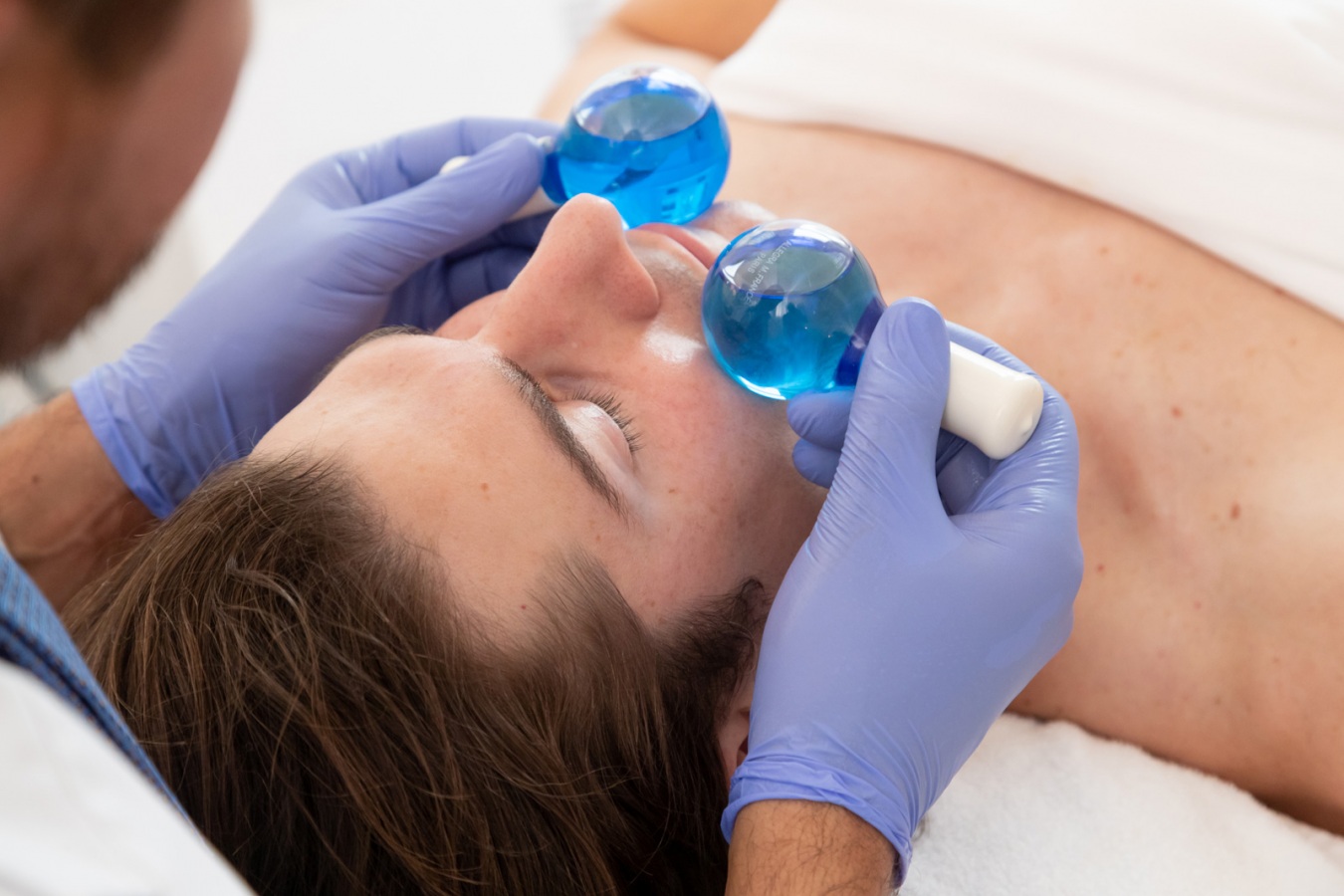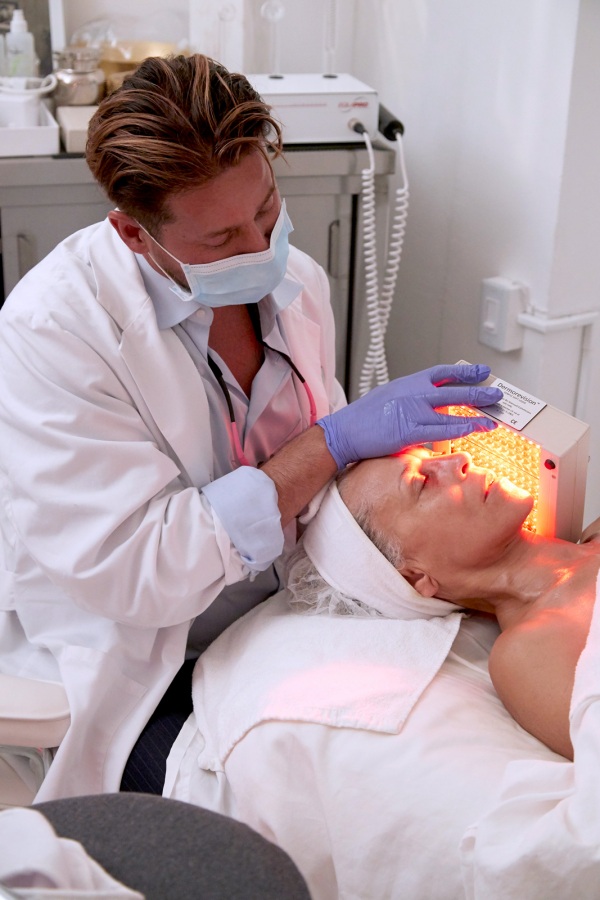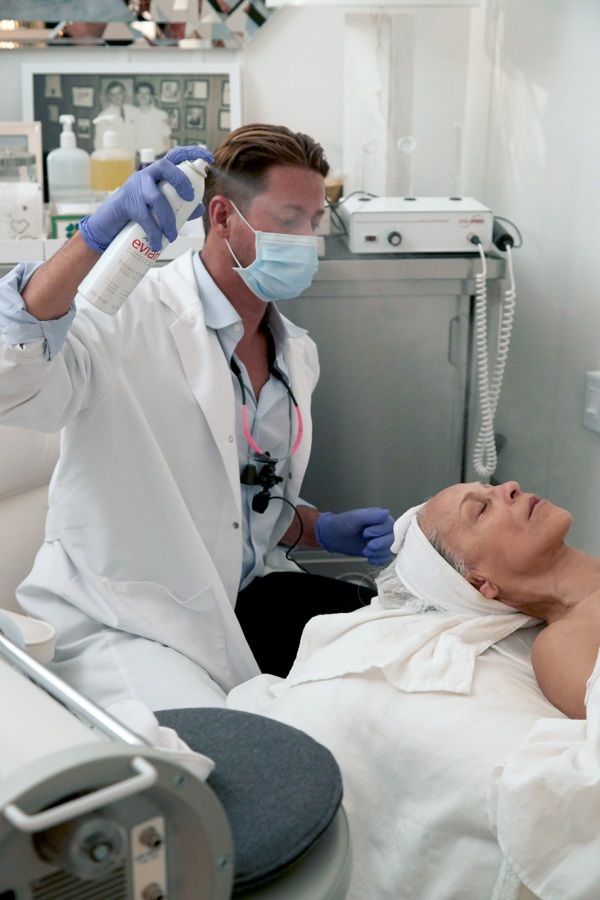
X

Blog
2020-01-14

Everyone knows that Vitamin C is good for you.
In America, we’ve been inundated with advertisements and recommendations, touting how imperative Vitamin C is to our health every day. It’s in practically every multivitamin on the market. It’s found in tons of foods like broccoli, kale, Brussels sprouts, kiwi, strawberries, oranges, peppers, sweet and white potatoes, tomatoes and more.
Vitamin C is necessary for the development and repair of all body tissues. Ingested, it helps us absorb iron, it bolsters our immune system, it helps us heal when we have cuts and abrasions and it helps maintain our cartilage, bones and teeth. Without it, we’re at risk for bleeding gums, the antiquated health affliction scurvy and a whole host of other problems.

More important to readers on this site, Vitamin C is necessary for healthy skin. Used topically, it helps with the formation of collagen, alleviates skin inflammation, clarifies and brightens the skin and has an almost immediate firming effect on fine lines and wrinkles. It’s an antioxidant that helps to protect skin from damaging UV light and if you do get too much sun, Vitamin C supports the skin during the self-repair.
In studies of people who have used L-ascorbic acid Vitamin C topically, you see beautiful before and after pictures. The wrinkles are less prominent. The skin in firmer, less weighty. The color is greatly improved. The results can be seen almost immediately.
While it’s extremely simple to add Vitamin C to your diet through the addition of a simple supplement or simply adding fruit to your menus, adding Vitamin C to your skincare regime for effective and safe long-term use can be quite more complex.
When we speak of Vitamin C for topical use, we can be speaking of dozens of different vitamin molecules. I like the term ascorbates to describe the many variations of topical Vitamin C available. This catchall can be used for calcium ascorbate, L-ascorbic acid, Dascorbic
acid, DL-ascorbic acid, ascorbyl palmitate, magnesium ascorbyl phosphate and more. There is even a new molecule from Japan called 3-O-ethyl ascorbic acid.

When I started working in the dermocosmetic field, we only had L-ascorbic acid. There were pure L-ascorbic acid powders that you mixed with water and massaged on the skin.
I found them to be very irritating, but believe it or not, there are still people that use this rudimentary form today.
This brings me to the single most important thing when dealing with topical Vitamin C — I do not believe Vitamin C topicals are innocuous and people should not play them just because they are “natural.” I believe consumers should work with a licensed skincare specialist or a dermatologist to determine which Vitamin C treatment to use.
The variations — combinations and proportions — of Vitamin C treatments available are countless. I recommend starting with a more gentle formulation and carefully switching to a stronger one when your skin can tolerate it.
Do-it-yourself usage of an L-ascorbic acid product that is too strong could cause subclinical or even clinical irritation, or the alteration of the vital barrier of the skin because of its low pH. You could actually create stress for the tissue, and over time, build an immune reaction, which is not good.

Users with hyperpigmentation could make their condition become worse in long term use(1). If you have darker skin, you don’t want the very acidic Vitamin C. Its acid could create sub-clinical irritation, which could lead to post-inflammatory mutation.
Users of retinoids may not react well to L-ascorbic acid use. The combination with a retinoid would cause a double dose of peel. You have to be careful with combinations — you could actually get so irritated you’d have to stop using all of the products to heal.
The point is that Vitamin C can create miraculous results if used correctly but can also create problems if used incorrectly. In the next blog post, we will discuss the most effective ways to use Vitamin C for glowy, healthy skin.

(1) The fact that you may see the skin of somebody improving on a YouTube tutorial after three weeks of use with a product containing ascorbates doesn’t mean that you’re going to have the same results after one or two years of use.
Vitamin C - Part 1

Goodness, Inside and Out: Vitamin C and Why It’s Good For Skin
In America, we’ve been inundated with advertisements and recommendations, touting how imperative Vitamin C is to our health every day. It’s in practically every multivitamin on the market. It’s found in tons of foods like broccoli, kale, Brussels sprouts, kiwi, strawberries, oranges, peppers, sweet and white potatoes, tomatoes and more.
Vitamin C is necessary for the development and repair of all body tissues. Ingested, it helps us absorb iron, it bolsters our immune system, it helps us heal when we have cuts and abrasions and it helps maintain our cartilage, bones and teeth. Without it, we’re at risk for bleeding gums, the antiquated health affliction scurvy and a whole host of other problems.

More important to readers on this site, Vitamin C is necessary for healthy skin. Used topically, it helps with the formation of collagen, alleviates skin inflammation, clarifies and brightens the skin and has an almost immediate firming effect on fine lines and wrinkles. It’s an antioxidant that helps to protect skin from damaging UV light and if you do get too much sun, Vitamin C supports the skin during the self-repair.
In studies of people who have used L-ascorbic acid Vitamin C topically, you see beautiful before and after pictures. The wrinkles are less prominent. The skin in firmer, less weighty. The color is greatly improved. The results can be seen almost immediately.
While it’s extremely simple to add Vitamin C to your diet through the addition of a simple supplement or simply adding fruit to your menus, adding Vitamin C to your skincare regime for effective and safe long-term use can be quite more complex.
When we speak of Vitamin C for topical use, we can be speaking of dozens of different vitamin molecules. I like the term ascorbates to describe the many variations of topical Vitamin C available. This catchall can be used for calcium ascorbate, L-ascorbic acid, Dascorbic
acid, DL-ascorbic acid, ascorbyl palmitate, magnesium ascorbyl phosphate and more. There is even a new molecule from Japan called 3-O-ethyl ascorbic acid.

When I started working in the dermocosmetic field, we only had L-ascorbic acid. There were pure L-ascorbic acid powders that you mixed with water and massaged on the skin.
I found them to be very irritating, but believe it or not, there are still people that use this rudimentary form today.
This brings me to the single most important thing when dealing with topical Vitamin C — I do not believe Vitamin C topicals are innocuous and people should not play them just because they are “natural.” I believe consumers should work with a licensed skincare specialist or a dermatologist to determine which Vitamin C treatment to use.
The variations — combinations and proportions — of Vitamin C treatments available are countless. I recommend starting with a more gentle formulation and carefully switching to a stronger one when your skin can tolerate it.
Do-it-yourself usage of an L-ascorbic acid product that is too strong could cause subclinical or even clinical irritation, or the alteration of the vital barrier of the skin because of its low pH. You could actually create stress for the tissue, and over time, build an immune reaction, which is not good.

Users with hyperpigmentation could make their condition become worse in long term use(1). If you have darker skin, you don’t want the very acidic Vitamin C. Its acid could create sub-clinical irritation, which could lead to post-inflammatory mutation.
Users of retinoids may not react well to L-ascorbic acid use. The combination with a retinoid would cause a double dose of peel. You have to be careful with combinations — you could actually get so irritated you’d have to stop using all of the products to heal.
The point is that Vitamin C can create miraculous results if used correctly but can also create problems if used incorrectly. In the next blog post, we will discuss the most effective ways to use Vitamin C for glowy, healthy skin.

(1) The fact that you may see the skin of somebody improving on a YouTube tutorial after three weeks of use with a product containing ascorbates doesn’t mean that you’re going to have the same results after one or two years of use.


